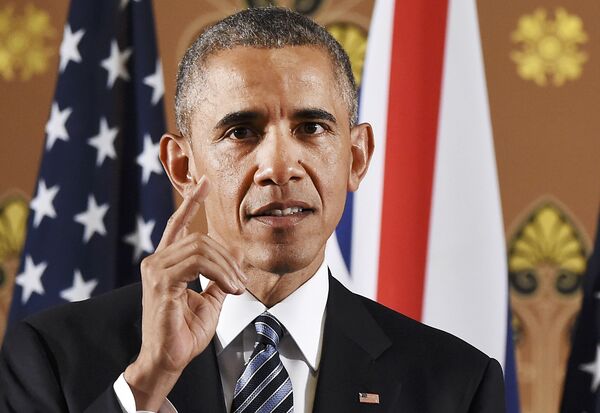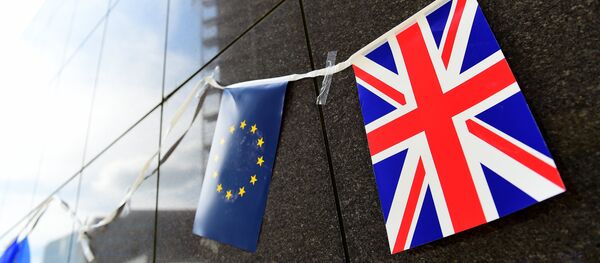The International Monetary Fund (IMF) waded into the EU referendum debate again Friday (May 13), with an analysis on what Britain could look like if it left the EU.
Lagarde: Brexit represents a significant downside risk and is an international issue that concerns the whole world
— IMF (@IMFNews) May 13, 2016
The IMF said a potential Brexit could lead to a weak economy and a fall in house prices, both of these topics are crucially important to the British public.
Christine Lagarde says the IMF "haven't seen anything positive" about Brexit. "It ranges from pretty bad to very, very bad."
— Kevin Schofield (@PolhomeEditor) May 13, 2016
But what else lies heavy on the average voter's heart?
House prices
The house market in the UK is a very hot topic, subject to bursts and bubbles, it's a key player in the UK economy.
Unlike other European countries, the Brits love to buy a home. Investing in bricks and mortar is no longer a chore; it's a business and fast becoming a luxury.
News | Our review of last week's elections and the impact on housing, infrastructure & land https://t.co/Az6VHTvCom pic.twitter.com/iNyfBd1V6T
— RICS (@RICSnews) May 9, 2016
House prices in the UK are rising and expected to increase by a further 25 per cent over the next five years, according to figures by the Royal Institution of Chartered Surveyor (RICS). However, with the IMF announcement on the impact a potential Brexit could have, the rise of homes in the UK may not reach the heights first thought.
High UK #housing prices = parents drain net wealth to help kids https://t.co/C8dLndbvuf@JackSidders @sharonrsmyth pic.twitter.com/o0vAy9jJKd
— Melinda Grenier (@mpgrenier731) May 5, 2016
The IMF has warned that leaving the EU will ultimately lead to declining economic growth and weaker house prices.
"A vote for exit would precipitate a protracted period of heightened uncertainty, leading to financial market volatility and a hit to output," the IMF said in their May 13 report.
Keeping the Pound
The British pound is birthed in sovereignty and history, moving to a single-currency is a big fear for most Brits. Having seen the impact that the euro had on countries such as Greece, keeping the pound is a huge deal.
David Cameron has assured the British people that a move to a single-currency is completely out of the question, and he has secured assurances from the Eurozone that they will not discriminate against Britain for having a different currency.
Security
With the recent attacks in Paris and the increase of terrorism around the world, security is of paramount importance for people in the UK and a vital part of the EU referendum debate.
Former Work and Pensions secretary, and Brexit camp supporter, Iain Duncan Smith, said recently that we are leaving the door open to terrorist attacks if we stay in the EU.
#Brexit ~ #GO ~ #LeaveEU 🇬🇧
— Carl #LeaveEU (@Fight4UK) May 8, 2016
We're safer in EU you know 😩😩😩😩
Gang rape, bombs, terrorism, so safe aren't we?
However, a dozen senior military figures, including former chiefs of defense staff, Lord Bramall claim the opposite.
In an open letter to No 10, they argue that the EU is an "increasingly important pillar of our security," especially at a time of instability in the Middle East.
Heads of MI6 and MI5 warn of very real regional security dangers of #Brexit and that counter terrorism is a team game.
— Otto English (@Otto_English) May 8, 2016
PM David Cameron, who wants to remain in the EU, also argued points on the issue of security by stating that leaving the EU could end the border agreement in place between England and France.
However, French officials have dismissed Cameron's statement and said that they will not pull out of the arrangement if the UK votes to leave the EU.
Employment
This topic depends on immigration, investment and trade; pro-EU campaigners have said that up to 3 million jobs are at risk if the UK leaves the EU. Statistics from Full Fact however, stated that 3 million jobs are linked to the EU, suggesting that these jobs are not dependent on the UK being part of the EU.
If trade and immigration fell post-Brexit then these 3 million jobs would be at risk.
In paper by the London School of Economics, Professor Adrian Fayell argued that limiting freedom of movement would deter the "brightest and best" of the continent from coming to Britain and as a result, would reduce the pool of candidates employers can chose from.
World Influence
Influence is important, it relates to power, presence and standing, especially amongst UK's international peers.
This is a very crucial time for the West, in particular the EU and the US, who are close allies in the war against terror.

President Obama's recent visit to the UK, was most certainly in favor of the UK staying in the EU. The US leader informed the British people that they would struggle to gain influence and "fall to the back of the line" in relation to trade agreements.




